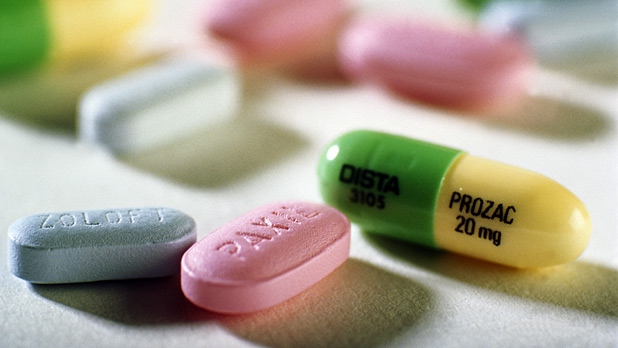By Kelly Patricia O’Meara
February 2, 2016
Yet another study confirms what the Citizens Commission on Human Rights (CCHR) has been saying for nearly two decades… antidepressants cause violent behavior. The most recent study—the largest-ever statistical analysis—conducted by Danish researchers, reviewed and analyzed 70 antidepressant clinical trials, including reading patient narratives and appendices of more than 18,000 participants, concluded that antidepressants doubled the risk of aggression and suicide in children and teens. One of the four researchers, Professor Peter Gotzsche, also says that antidepressants don’t even work for children.[1]
While it long has been known by those who were prescribed antidepressants that abnormal thoughts and behavior and, even, suicidality and homicidality were among the many adverse effects associated with the psychiatric drugs, regulatory agencies, pharmaceutical representatives and too many in the medical-psychiatric community, simply dismissed the complaints.
Now, however, with the drug clinical trial data publically available for review, a new, perhaps more sinister, picture is developing. According to Danish researchers at the Nordic Cochrane Centre in Copenhagen, the extent of the harm and the adverse events that occurred during the clinical trials were hidden or misrepresented.[2]
Dr. Joanna Moncrieff of University College London, who wrote an accompanying editorial to the study, explained that “several deaths were misclassified, and more than half the instances of suicide attempts and suicidal ideation were coded as ‘emotional liability’ [mood displays] or ‘worsening of depression.’” And the Danish researchers further explained that the misclassification, misrepresentation and under-reporting of adverse events during the clinical trials may have led to “serious under-estimation of the harms.”[3]
One of the authors, Professor Gotzsche, explained that there was much more at stake than simple reporting problems when he said “antidepressants don’t work in children, that is pretty clear, in the randomized trials children say that they don’t work for them, but they increase their risk of suicide.”[4]

Another study, published in PLOS Medicine, found young adults between 15 and 24 were nearly fifty percent more likely to be convicted of a homicide, assault, robbery, arson, kidnapping, sexual offense and other violent crime when taking antidepressants than when they weren’t taking the psychiatric drugs.
This latest revelation is in lockstep with other recent data exposing the harmful effects of antidepressants on children, including study published in PLOS Medicine, which found young adults between the ages of 15-24 were nearly fifty percent more likely to be convicted of a homicide, assault, robbery, arson, kidnapping, sexual offense and other violent crime when taking antidepressants than when they weren’t taking the psychiatric drugs.[5]
And that study came on the heels of another report exposing the fraudulent research of GlaxoSmithKline’s antidepressant, Paxil. According to the review of the data used for the approval of the antidepressant, Paxil is not effective in the treatment of children and there is significant risk of suicide associated with it.[6]
At some point the question has to be asked: How many studies, using drug clinical trial data, are necessary before regulatory agencies and the medical community take the appropriate steps to protect children from the harms associated with these psychiatric drugs? Perhaps Prof. Gotzsche summed up best what these data reveal when he said: “It is absolutely horrendous that they have such disregard for human lives.”[7]
This “disregard for human lives” amounts to more than two million American children and adolescents who, according to IMS Health Vector One National database for 2013, have been prescribed antidepressants, including 26,000 0-1 year olds, 46,000 2-3 year olds and more than 45,000 4-5 year olds.[8]
While the Danish study focuses on the data gleaned for children, there seems little doubt on the part of the study authors that the harm caused by antidepressants is not limited to just children, as Prof. Gotzsche commented, “What I get out of this colossal underreporting of suicides is that [antidepressants] likely increase suicides in all ages.”[9]
These sentiments paint a grim picture given the data released by the Center for Disease Control and Prevention (CDC).
- Antidepressant prescribing rose nearly 400% from 1988 to 2008.
- Eleven percent (nearly one in eleven) of Americans aged 12 years and over take at least one antidepressant.
- About fourteen percent of Americans taking antidepressants have done so for 10 years or longer.
- Nearly one in four women (23%) in their 40s and 50s take antidepressants.[10]
More telling, though, are the data provided by the Food and Drug Administration (FDA) which show that between 2004 and 2012, there have been 14,773 reports to the federal agency’s MedWatch system on psychiatric drugs causing violent side effects, including aggression, mania, suicidal ideation/ homicidal ideation and physical assault to name a few. This data does not reflect all of the adverse events that have occurred, as the agency admits that only 1%-10% are actually reported. Nor does the data reflect the 35 school shootings and/or school related acts of violence having been committed by those taking or withdrawing from psychiatric drugs.
By 1991, antidepressants were known to cause
violence & suicide.
Since 1991 CCHR has been at the forefront of exposing the dangers associated with antidepressant use, culminating in the 2004 “black box” warning for suicidal ideation being placed on all antidepressants.
Given that each new study appears to reflect documentable, concrete evidence that antidepressants not only are ineffective in “treating” depression in children, but actually cause violent behavior and self-harm, CCHR believes it is time for the FDA and other regulatory agencies around the world to reassess the prescribing of antidepressants to children.
The FDA has a duty and a responsibility to ensure that the products on the market do not cause harm. It needs to place children’s lives above the interests of psychiatrists and others prescribing antidepressants to the pediatric population. Antidepressants, which double the risk of aggression and suicide in children, cannot, by anyone’s standards, be called safe “treatment” and should be prohibited for use in children and adolescents.
Kelly Patricia O’Meara is an award-winning former investigative reporter for the Washington Times’ Insight Magazine, penning dozens of articles exposing the fraud of psychiatric diagnosis and the dangers of the psychiatric drugs—including her ground-breaking 1999 cover story, “Guns & Doses,” exposing the link between psychiatric drugs and acts of senseless violence. She is also the author of the highly acclaimed book, Psyched Out: How Psychiatry Sells Mental Illness and Pushes Pills that Kill. Prior to working as an investigative journalist, O’Meara spent sixteen years on Capitol Hill as a congressional staffer to four Members of Congress. She holds a B.S. in Political Science from the University of Maryland.
References:
[1] Tarang Sharma, et al., “Suicidality and aggression during antidepressant treatment: systematic review and meta-analyses based on clinical study reports,” The British Medical Journal, 2016, http://www.bmj.com/content/352/bmj.i65; Sarah Knapton, “Antidepressants can raise the risk of suicide, biggest ever review finds,” The Telegraph, 27 Jan 2016, http://www.telegraph.co.uk/news/health/news/12126146/
Antidepressantscanraisetheriskofsuicidebiggesteverreviewfinds.html.
[2] Op. cit., Sarah Knapton, The Telegraph, 27 Jan 2016.
[3] Susan Scutti, “Antidepressant Side Effects: SSRIs May Double Suicide Risk, Aggression In Kids And Teens,” Medical Daily, 27 Jan 2016, http://www.medicaldaily.com/antidepressantssuicideaggressionteens371164.
[4] Op. cit., Sarah Knapton, The Telegraph, 27 Jan 2016.
[5] Karen Kaplan, “Rx for violence? Crime risk rises for young people on antidepressants, study says,” Los Angeles Times, 15 Sep 2015, http://www.latimes.com/science/sciencenow/la-sci-sn-antidepressant-ssri-violent-crime-risk-20150915-story.html.
[6] Ashley Welch, “Popular antidepressant Paxil not safe or effective for teens, study finds,” CBS News, 16 Sep 2015, http://www.cbsnews.com/news/paxilantidepressantineffectiveunsafeforteensstudyfinds/.
[7] Op. cit., Sarah Knapton, The Telegraph, 27 Jan 2016.
[8] IMS, Vector One: National (VONA) and Total Patient Tracker (TPT) Database, Year 2013, Extracted 2014.
[9] Op. cit., Sarah Knapton, The Telegraph, 27 Jan 2016.
[10] “Antidepressant Use in Persons Aged 12 and Over: United States, 2005–2008,” Centers for Disease Control and Prevention, NCHS Data Brief No. 76, October 2011, http://www.cdc.gov/nchs/data/databriefs/db76.htm.




SHARE YOUR STORY/COMMENT